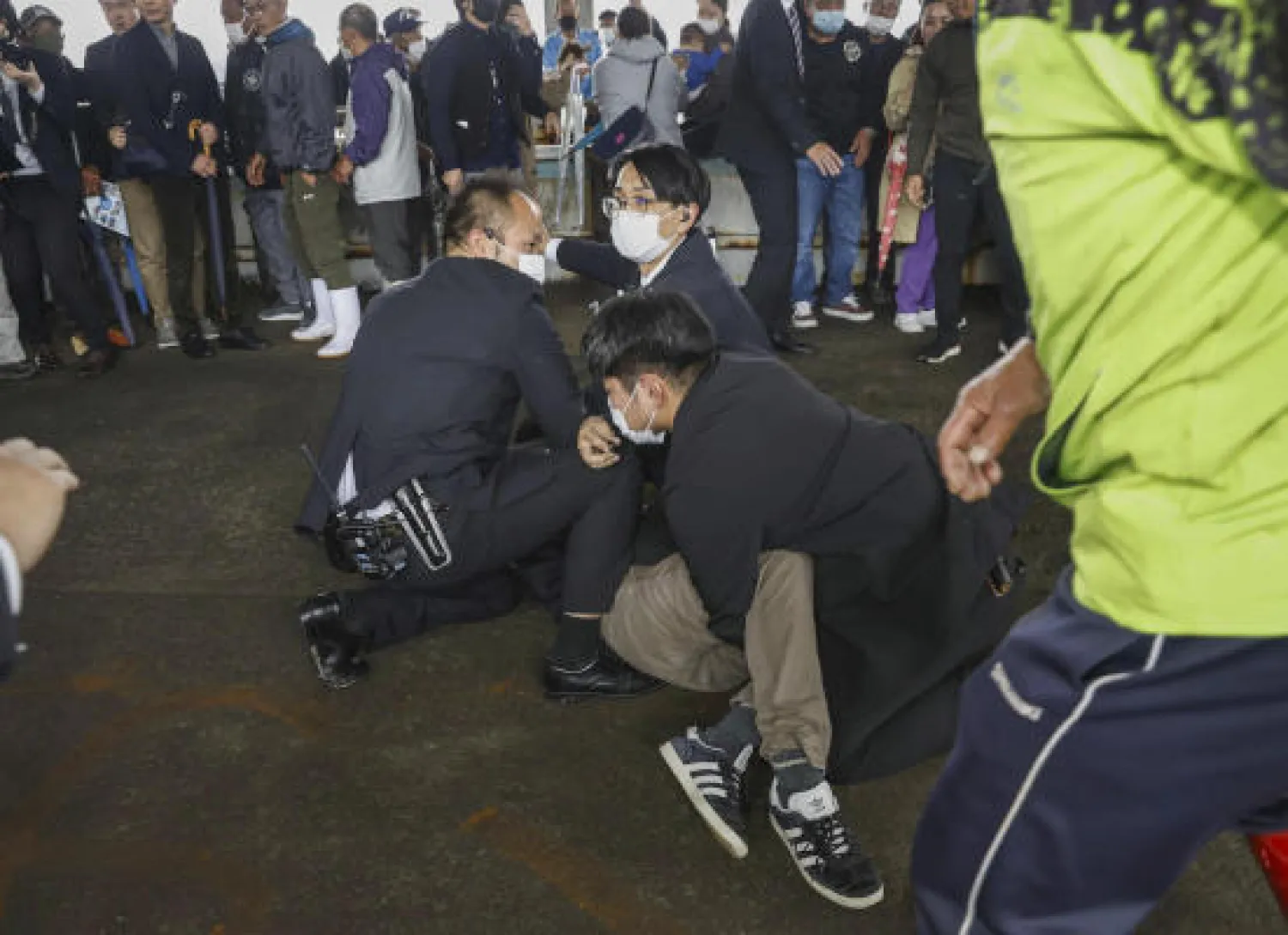Japanese Prime Minister Fumio Kishida was evacuated unharmed Saturday after someone threw an explosive device at a campaign event in a western port city, officials said. Police wrestled a suspect to the ground as screaming bystanders scrambled to get away and smoke filled the air.
Although no one was hurt, and Kishida planned to continue campaigning Saturday, the chaotic scene was reminiscent of the assassination nine months ago of former Prime Minister Shinzo Abe, which also came on a campaign tour and continues to reverberate in Japanese politics. Kishida was visiting the Saikazaki port in Wakayama prefecture to support his ruling party’s candidate in a local election, and the explosion occurred just before he was to begin his speech, The Associated Press said.
A young man believed to be a suspect was arrested Saturday at the scene after he allegedly threw “the suspicious object,” Chief Cabinet Secretary Hirokazu Matsuno told reporters. TV footage showed several uniformed and plainclothes police officers gathered around the man, piling onto him and roughly dragging him over the ground. It wasn’t immediately clear what caused the explosion, but some reports said it was a smoke or pipe bomb.
Matsuno refused to comment on the suspect's motive and background, saying police are still investigating.
No injuries were reported in the incident, which came on the eve of a major international forum in Japan. Kishida was not hurt and planned to continue giving campaign speeches later Saturday, Matsuno said.
“Elections are the core of democracy and we should never tolerate threats or obstruction by violence, and I believe (continuing on with his campaign schedule) was the prime minister’s judgment in that context,” Matsuno said.
He said he instructed national police to ensure their utmost effort for the protection of dignitaries who are visiting Japan in the period leading up to the Group of Seven summit in May.
Abe's assassination, which shocked a nation that prides itself on public safety and extremely tight gun controls, came as he delivered a campaign speech in the western city of Nara. Amid a national outcry, police have tightened their protective measures following a subsequent investigation that found holes in Abe’s security.
Security has been also ramped up in Japan as senior diplomats from some of the world’s most powerful democracies arrive for Sunday's G-7 foreign minister meetings. Kishida will host a May 19-21 G-7 leaders' summit in his hometown of Hiroshima.
One witness Saturday told NHK television that she was standing in the crowd when she saw something come flying from behind. After a sudden loud noise, she fled with her children. Another witness said people were screaming and that he saw someone being apprehended right before the explosion occurred.
Saturday’s attack comes ahead of nationwide local elections, including several by-elections for vacated parliamentary seats, with voting scheduled for April 23.
In Abe’s assassination, the former prime minister was shot with a homemade gun during a campaign speech. The suspect, Tetsuya Yamagami, has been charged with murder and several other crimes, including violating the gun control law.
Abe’s alleged assassin told investigators that he killed Abe, one of Japan’s most influential and divisive politicians, because of the former prime minister’s apparent links to a religious group that he hated. In statements and in social media postings attributed to him, Yamagami said he developed a grudge because his mother had made massive donations to the Unification Church that bankrupted his family and ruined his life.
Abe's assassination led to the resignation of top local and national police chiefs and a tightening of security guidelines for political leaders and other prominent people.
Kishida's government was hoping to focus world attention this weekend on the hot spring resort town of Karuizawa, where senior diplomats will gather Sunday for the so-called Group of Seven foreign ministers’ meeting.
The foreign ministers from Japan, the United States, the United Kingdom, France, Germany, Canada, Italy and the European Union are expected to focus on worries over Russia's war in Ukraine, China's increasingly belligerent rise and North Korea's provocative string of weapons' tests.









